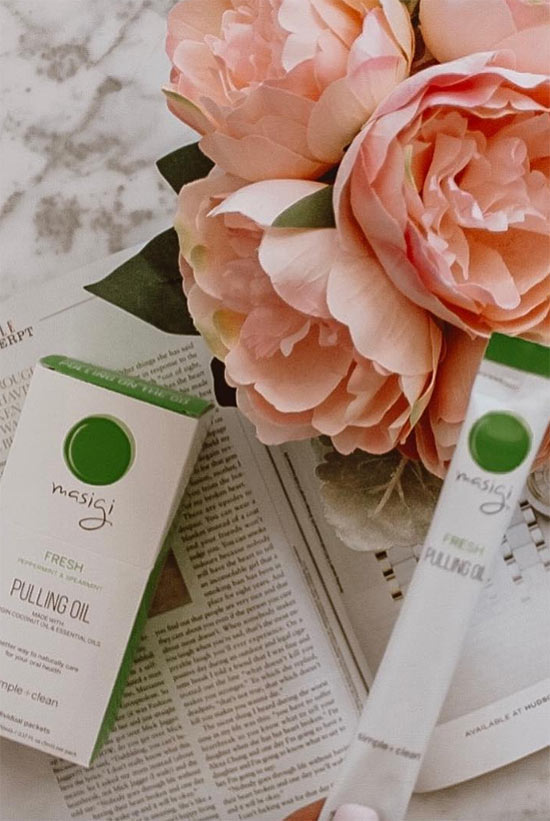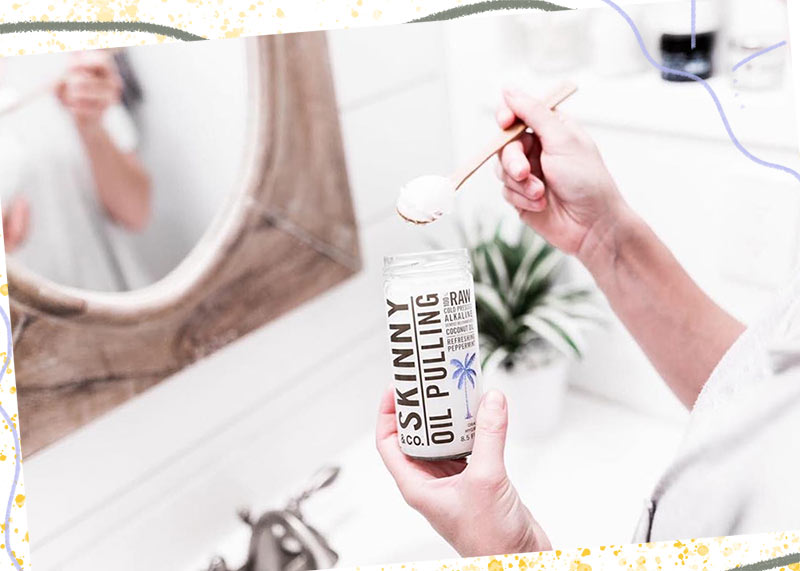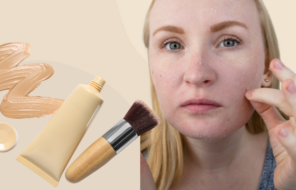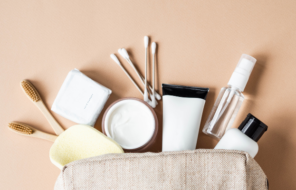Oil pulling exploded on the natural beauty scene a little more than five years ago, notably gaining traction after a segment on the Dr. Oz show. However, oil pulling for teeth is actually a very old practice based in the Indian traditional medicine practice of Ayurveda.
The health claims surrounding oil pulling from most plausible to least plausible include the ability to prevent bad breath and bleeding gums, clear congestion, and even treat migraines and sleep problems. Oil pulling is also often recommended for teeth whitening.
As with many other traditional medicine practices, it’s hard to tell which parts are real and which are placebo. The underlying principles of Ayurveda are based on spirituality more than they are in science, but at the same time, its practices have endured for thousands of years and some have shown promise once researched.
In this article, I am going to explain what oil pulling is as well as a bit of its significance in Ayurveda. Then, I’ll dive in to cover the benefits of oil pulling that have a bit more scientific backing. I also talk about the potential risks of oil pulling and explain how to do it safely. Then, to finish things off, I’ll answer the most important question of all: can oil pulling really whiten your teeth?
In this article:
- What Is Oil Pulling?
- All the Oil Pulling Benefits
- Are There Any Risks to Oil Pulling?
- How to Do Oil Pulling for Teeth
- Can Oil Pulling Whiten Teeth?
What Is Oil Pulling and How Does It Work?
Oil pulling, which in Ayurveda is called either ‘gundusha’ or ‘kaval’, is the practice of swishing oil around the mouth in order to improve both oral and overall health. The traditional oil to use for the practice is sesame oil, which is a staple in South Indian cooking, though coconut oil has transcended its popularity in the West thanks to its milder flavor and the long list of beneficial fatty acids and phytochemicals present in it. Other oils sometimes cited for oil pulling include sunflower oil and olive oil.
According to the Chopra Center, it is believed in Ayurveda that different sections of the tongue are connected to different parts of the body, so by swishing the oil around you can actually benefit many other organs. It is true that oral health is connected to overall health since the body easily absorbs bacteria through the gums, but whether that means that oil pulling specifically will have better health benefits than other oral health practices is debatable.
There are a few suggested mechanisms for how oil pulling works. One of those mechanisms is saponification. The idea is that when the oil is swished around enzymes in the mouth react with the oil to have a saponification mechanism, which ends up releasing beneficial fatty acids from the oil and giving a mechanical cleaning action, and there is even a bit of research to support this idea. Others suggest that it is simply the swishing mechanism that dislodges debris and helps to cleanse the mouth.
Part of the reason why it is called ‘oil pulling’ in English is that it is thought that the oil can actually absorb toxins through the mouth. This is easy to dismiss – if you’ve read my articles before you know that “toxins” and “detox” are often buzzwords used for fear mongering and to mislead people.

All the Oil Pulling Benefits
In an attempt to separate the wheat from the chaff, I’ll add the proven (or at least, somewhat evidence-backed) oil pulling benefits. It’s worth noting that even Ayurveda practitioners agree that oil pulling is not a replacement for other oral care practices like brushing and flossing. Instead, it is considered a complementary option.
The most notable and well-document effect of oil pulling is that it helps to eliminate certain bacteria and reduce bad breath and plaque build-up as a result. This can also help prevent gingivitis and other bacterial oral issues, and may also help keep bacteria from getting into the bloodstream through the mouth.
The studies that tested this usually compared oil pulling to rinsing with mouth wash and found that in some instances the results were comparable, while in others mouthwash performed better.
What I see as a bit potential benefit of oil pulling, especially when compared to mouth wash, is that it is less likely to cause mouth dryness. Instead, the fatty acids in the oil have emollient properties and antioxidant content that can help soothe inflammation and protect from oxidative damage. Coconut oil, in particular, has shown some wound healing abilities, so it could be especially soothing to those with sensitive gums.
Other benefits often listed for oil pulling include that it whitens teeth, prevents jaw pain and headaches (perhaps by giving you a jaw workout), and helps to clear congestion. The only evidence backing these benefits is anecdotal, so it should be taken with a grain of salt.

Are There Any Risks to Oil Pulling?
As far as traditional remedies go, oil pulling is a fairly safe one. The main risk with oil pulling is lipoid pneumonia, a type of pneumonia that occurs when one aspirates or inhales the oil.
Lipoid pneumonia is very rare, and it’s hard to say what the chances of getting it from regular oil pulling are since there aren’t many documented case studies of it happening. It is more common as a result of consuming oil-based laxatives. You should be cautious not to inhale oil while oil pulling and pay attention to any signs of pneumonia, like shortness of breath, chest pain or coughing.
The second risk is much less serious and just a smidge more likely. Oils can cause contact dermatitis in certain individuals, so it’s important to patch test the oil on your skin before swishing it around in your mouth, especially if you haven’t used it before.
Lastly, you have to consider the risks of consuming oil and its impact on cholesterol levels. If you’re oil pulling correctly you won’t swallow any oil, but it might be hard to avoid when you have to keep the oil in your mouth for so long. Because of this, limiting the amount of time you spend oil pulling is preferred to accidentally swallowing the oil.
Lastly, it bears repeating that oil pulling is never a replacement for a proper oral hygiene regimen of brushing and flossing! If you choose to do it, add it to your existing routine rather than replacing any practices.

How to Do Oil Pulling for Teeth
- To start, make sure that your oil of choice is runny and liquidy – this is especially important for coconut oil, which is usually solid at room temperature. You might have to heat it up for a few seconds to make sure that it is totally melted.
- If you don’t have sensitivities to essential oils, you can also add a few drops of mint or clove essential oil to improve the flavor and enjoy some cooling and additional antibacterial effects.
- Place ½-1 tablespoon of the oil in your mouth, and begin swishing it around gently. Don’t overdo it, as that may lead to jaw pain.
- If you’d like to stick as closely to the Ayurvedic standard of gundusha, make sure to swish the oil around your mouth for exactly 20 minutes. Focus on swishing it in such a way so that it goes back and forth over the teeth, and even in between the teeth if possible.
- If you cannot tolerate swishing the oil around for so long, you can experiment with just swishing it around for a few minutes and then holding it in your mouth, or you can just vary the amount of time that you hold it in your mouth. Studies on oil pulling usually had participants swish it around for 10 minutes.
- Once enough time has elapsed, spit the oil out directly into the trash can, or into a cup and then into the garbage. Avoid spitting the oil into the sink, as doing so repeatedly can damage your pipes.
- Rinse your mouth with warm water to get rid of any oil residue, and then brush and floss your teeth like you normally would. You can also experiment with oil pulling after you’ve brushed your teeth.
- According to traditional sources, oil pulling should be done every day. Modern sources specify that it should be done before brushing and flossing, and never instead of it.

Can Oil Pulling Whiten Teeth?
Now it’s time for the big question! We’ve already established that oil pulling has some benefits to oral health, but is this practice really the teeth whitening miracle so many sources claim? The answer is… probably no.
While some fans of oil pulling do claim that it has whitened their teeth, others haven’t seen such effects, and there is no mechanism that proves that it can do that. It is possible that by encouraging a more involved oral care routine and killing bacteria oil pulling can promote whiter teeth, but it’s not in and of itself a teeth whitening practice.
Photos via @the_realrebekah, Instagram





